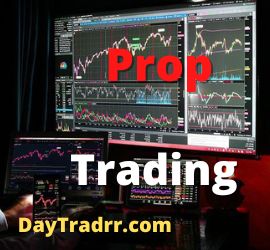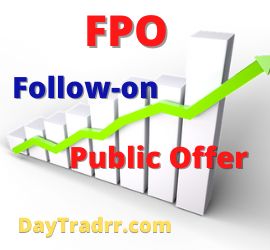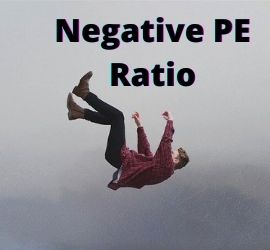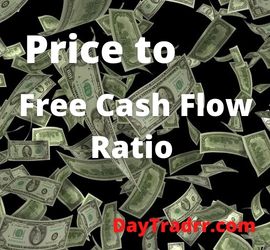Prop Trading – What is Proprietary Trading?
 Prop trading is the proprietary trading activity that occurs when a bank or firm trades stocks, derivatives, bonds, commodities, or other financial securities on its own behalf for its own economic gain. A financial firm or commercial bank that invests for direct market advantage rather than generating commission dollars by trading on behalf of clients is said to engage in prop trading. This sort of trading activity occurs when a financial business chooses to profit from market activities on its own behalf rather than by thin-margin commissions collected from client trading activity. Proprietary trading may include the purchase and sale of stocks, bonds, commodities, currencies, or other financial products.
Prop trading is the proprietary trading activity that occurs when a bank or firm trades stocks, derivatives, bonds, commodities, or other financial securities on its own behalf for its own economic gain. A financial firm or commercial bank that invests for direct market advantage rather than generating commission dollars by trading on behalf of clients is said to engage in prop trading. This sort of trading activity occurs when a financial business chooses to profit from market activities on its own behalf rather than by thin-margin commissions collected from client trading activity. Proprietary trading may include the purchase and sale of stocks, bonds, commodities, currencies, or other financial products.
Financial firms or commercial banks that participate in proprietary trading believe they have a competitive advantage. As a result, they believe it allows them to outperform index investing, bond yield appreciation, or other investment methods.
Prop Trading – A Closer Look
Proprietary trading happens when a trading desk at a financial institution, brokerage business, investment bank, hedge fund, or other liquidity source conducts self-promoting financial transactions. They do this on the company’s behalf using the firm’s capital and balance sheet. These transactions are typically speculative in nature. They are carried out using a variety of derivatives or other complicated investment instruments. Banks and other financial entities participate in this form of trading in order to maximize profits. In terms of market information, such firms frequently have an advantage over the average investor. Another advantage is the availability of advanced modeling and trading software.
To optimize gains, prop traders employ tactics such as merger arbitrage, index arbitrage, global macro-trading, and volatility arbitrage. Also, prop traders have access to sophisticated tools and data pools to assist them in making split-second judgments. Proprietary trading is frequently one of the most profitable operations of a commercial or investment bank. This is in spite of the common yet accurate perception that it is risky. Prop traders and hedge funds were among the firms investigated for their role in precipitating the 2008 financial crisis. To control how private traders can work going forward, the Volcker rule was implemented. Among other concerns, the rule is aimed at avoiding potential conflicts of interest between the firm and its clients. Prop trading does not assist individual investors because it does not include deals done on behalf of clients.
Prop Trading and the Volker Rule
The Volcker rule is one of the provisions of the Dodd-Frank Wall Street Reform and Consumer Protection Act. Paul Volcker, the former chairman of the Federal Reserve, proposed it. The guideline is intended to prevent banks from making speculative investments that do not immediately benefit their depositors. Following the global financial crisis, government regulators judged that huge banks were taking too many speculative risks. Volker contended that commercial banks engaging in high-risk investments harmed the overall financial system’s stability.
Commercial banks that engaged in proprietary trading boosted their use of derivatives as a risk management tool. However, this activity frequently resulted in higher danger in other areas of the financial system. The Volcker Rule bars banks and institutions that own a bank from engaging in proprietary trading. They are further restricted from owning or investing in a hedge fund or private equity fund. Banks should focus on keeping consumers satisfied from a market-making standpoint. Therefore, its income is based on commissions. However, from the standpoint of proprietary trading, the consumer is unimportant, and the banks profit completely.
Prop Trading versus Hedge Funds
Hedge funds invest in the financial markets primarily using client money. As a result, these funds are compensated for generating profits from these assets. Proprietary traders invest their firm’s own money in the financial markets, and they keep 100% of the profits.
- Hedge funds – Unlike proprietary traders, these funds are accountable to their clients. Nevertheless, hedge funds are targets of the Volcker Rule. The Dodd-Frank Reform Act aims to limit the amount of risk that financial institutions can accept.
- Prop trading – By investing in financial markets, proprietary trading tries to boost the firm’s balance sheet. Because they are not dealing with client funds, traders can take larger risks. Firms enter proprietary trading with the expectation of gaining a competitive advantage. Moreover, they have access to important information that will allow them to make large profits. The traders are exclusively accountable to their companies. The earnings gained through prop trading do not help the firm’s clients.
Benefits and Pitfalls of Proprietary Trading
There are numerous advantages to proprietary trading for a financial institution or commercial bank. Most notably is the potential for increased quarterly and annual earnings. When a brokerage business or investment bank trades on behalf of its clients, it receives commissions and fees. This income may be a very tiny percentage of the entire amount invested or the gains made. Prop trading allows an institution to collect 100% of the gains earned from investments and trades.
Benefits
- Stockpile inventory – The proprietary trading institution is able to stockpile an inventory of securities. Any speculative inventory allows the institution to offer an unexpected advantage to clients. Also, it helps these institutions prepare for down or illiquid markets. In those conditions, it becomes harder to purchase or sell securities on the open market.
- Ability to make markets – By providing liquidity on a single security or group of securities, a financial institution might become an influential market maker. Prop trading allows companies to swiftly rise as market leaders. A firm that deals with specific types of securities can provide liquidity to its other clients. A company can purchase the securities with its own funds and then sell them to interested investors at a later date.
Pitfalls
However, there is a downside when a company buys securities in bulk when they lose value. In that case, the company will be compelled to absorb the losses internally. The corporation only gains if the price of its security inventory rises. Or, if it is resold to another buyer at a higher price.
An Example of a Proprietary Trading Desk
The Volker rule still authorizes banks to continue market making, underwriting, hedging, and trading of government securities. Also, to engage in insurance company activities such as offering hedge funds and private equity funds. They may also continue acting as agents, brokers, or custodians. Banks may continue to provide these services to their consumers and gain money from doing so. However, they are prohibited from engaging in these activities if doing so could result in a serious conflict of interest, expose the institution to high-risk assets or trading techniques, or create instability within the bank or the U.S. financial system.
A financial institution’s proprietary trading desk is generally “roped off” from other trading desks. This is in order for proprietary trading to be effective while also keeping the institution’s clients in mind. This desk is in charge of a component of the financial institution’s revenue. However, it is unconnected to customer work and operates independently. Nevertheless, as previously stated, private trading desks can also act as market makers. This occurs when a client wishes to trade a large quantity of a single security or particularly illiquid security. There is only a limited number of buyers and sellers that can accommodate this size of a transaction. Therefore, a proprietary trading desk can act as the buyer or seller. In this circumstance, the prop trading desk can initiate the other side of the client trade.
The main jobs at prop trading firms are:
- Trader – Purchasing and selling securities and managing risk. This is done using models, software, and automated techniques. Or, the trader’s own intuition, experience, and judgment.
- Quant Researcher – Responsible for developing mathematical models to support trading algorithms and strategies.
- Developer – Responsible for putting the academics’ models into action. Also, creating and maintaining the programming that allows the traders to accomplish their duties.
Up Next: FPO – What Is a Follow-on Public Offer?
 FPO, or Follow-on Public Offer, is how a firm already listed on the stock exchange issues new shares to current shareholders or new investors. It is a procedure where a firm that is publicly traded issues fresh shares to existing shareholders or to the open market. A firm can use an FPO to diversify its equity base or to pay off debt. Follow-on offerings are also known as secondary offerings.
FPO, or Follow-on Public Offer, is how a firm already listed on the stock exchange issues new shares to current shareholders or new investors. It is a procedure where a firm that is publicly traded issues fresh shares to existing shareholders or to the open market. A firm can use an FPO to diversify its equity base or to pay off debt. Follow-on offerings are also known as secondary offerings.
FPO vs IPO
An IPO is an initial public offering. It occurs when an unlisted firm issues shares to the public for the first time. An IPO is a method most companies use to become listed on a publicly-traded stock exchange. Hence, it is known as an IPO or initial public offering. FPO, on the other hand, is a process that occurs following an IPO. It is when the publicly listed corporation offers additional shares to the public.




